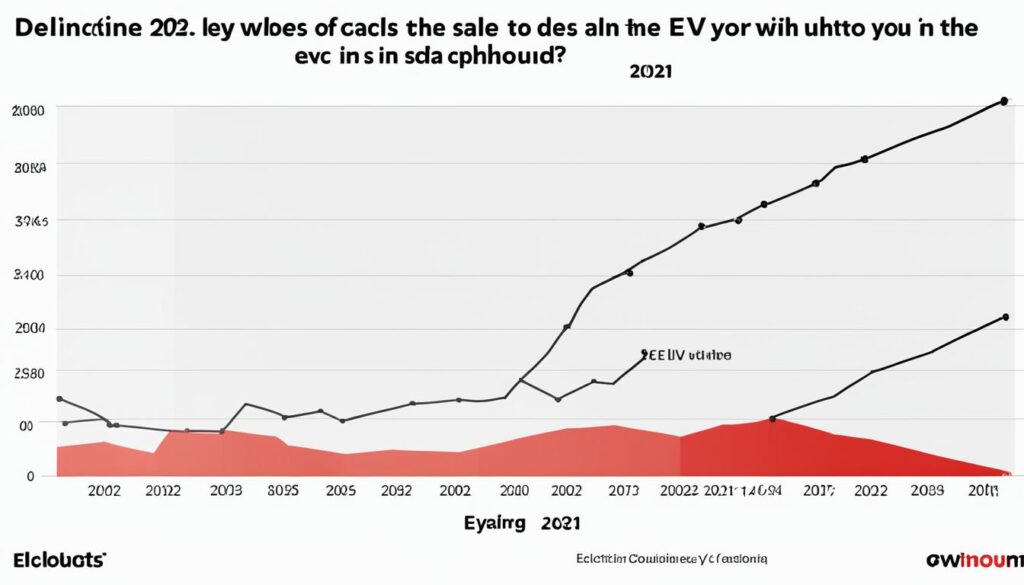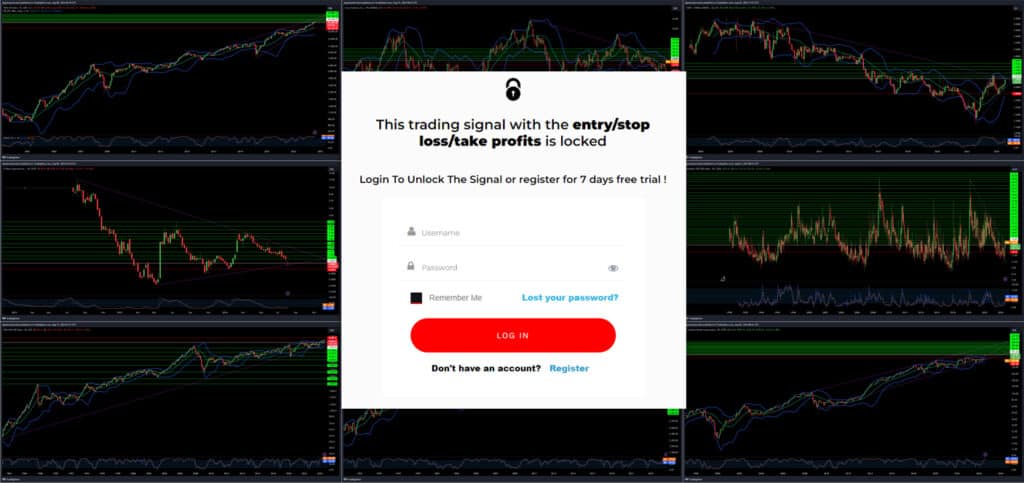Sector-Specific ETFs offer investors a unique opportunity for targeted investment strategies, allowing them to focus on specific sectors of the market. These ETFs concentrate on particular industries or sectors, such as defense, technology, or healthcare, providing exposure to companies deeply entrenched in a specific area. By investing in sector-specific ETFs, investors can capitalize on the potential of specialized market segments while diversifying their portfolio.
Whether you’re interested in the defense sector, cryptocurrencies, or electric vehicles, sector-specific ETFs offer a way to align your investment strategy with your interests. Investing in these ETFs allows you to take advantage of the growth potential in these sectors and potentially outperform broader market indices.
Key Takeaways:
- Sector-Specific ETFs provide exposure to specific industries or sectors of the market.
- These ETFs allow for targeted investment strategies and diversification.
- Investing in sector-specific ETFs enables investors to capitalize on the potential of specialized market segments.
- ETFs focused on sectors such as defense, cryptocurrencies, and electric vehicles offer growth opportunities.
- By aligning your investment strategy with your interests, you can take advantage of sector-specific ETFs’ potential.
The NATO Future of Defense ETF: A Closer Look
The NATO Future of Defense ETF is an investment opportunity designed to provide exposure to the defense sector and NATO’s allied defense spending. This ETF offers a closer look into the evolving landscape of defense technology and cyber defense. With strict inclusion criteria, it focuses on companies that generate a significant portion of their revenue from defense manufacturing, military equipment, and cybersecurity operations, ensuring a concentrated investment approach.
“The NATO Future of Defense ETF offers investors the chance to align their portfolios with the growing defense sector and the increasing demand for advanced defense technology and cyber defense capabilities. By targeting companies deeply rooted in the defense industry, this ETF offers a unique perspective and potential for growth.”
Investors who choose the NATO Future of Defense ETF benefit from its emphasis on global diversification. The ETF sets a maximum country weight of 60%, allowing non-US defense companies to participate. This global approach taps into rising defense spending in countries around the world, not just limited to the United States.
As the demand for defense technology and cyber defense capabilities increases, investors recognize the need to consider environmental, social, and governance (ESG) factors. The NATO Future of Defense ETF addresses these concerns by incorporating ESG considerations into its investment strategy. By aligning with companies that prioritize sustainability and responsible business practices, the ETF allows investors to support defense companies that are committed to long-term value creation.
The NATO Future of Defense ETF provides a comprehensive opportunity for investors to engage with the defense sector and capitalize on the growth of defense technology and cyber defense. By focusing on companies that play a significant role in defense manufacturing, military equipment, and cybersecurity operations, this ETF offers exposure to a sector with high potential for innovation and long-term growth.
| Key Points | Benefits |
|---|---|
| Focus on defense manufacturing, military equipment, and cyber defense | Provides exposure to a growing sector |
| Global diversification with a maximum country weight of 60% | Access to non-US defense companies |
| Incorporation of ESG considerations | Supports sustainable and responsible defense practices |
The Rise of Bitcoin ETFs
The US Securities and Exchange Commission (SEC) has recently approved Bitcoin ETFs, marking a significant milestone for cryptocurrency investors. With this approval, investors can now gain exposure to Bitcoin through exchange-traded funds (ETFs), providing them with a new avenue to participate in the cryptocurrency market.
The SEC’s decision to approve Bitcoin ETFs signifies a growing acceptance of digital assets within the traditional financial industry. This regulatory green light could attract more institutional investors who were previously cautious about directly investing in cryptocurrencies.
While the approval of Bitcoin ETFs did not have a substantial impact on the price of Bitcoin itself, it has opened up new opportunities for investors interested in the cryptocurrency. ETFs offer a convenient and regulated way to invest in Bitcoin without the complexities of managing private wallets or navigating cryptocurrency exchanges.
One notable player in the Bitcoin ETF space is Coinbase, which serves as the custody partner for many of these ETFs. Coinbase’s role as a trusted custodian adds a layer of security for investors, further enhancing their confidence in Bitcoin ETFs.
To highlight the significance of this development, let’s take a closer look at the rise of Bitcoin ETFs and their potential implications for the cryptocurrency market:
Benefits of Bitcoin ETFs
Bitcoin ETFs offer several advantages for both retail and institutional investors:
- Gain exposure to Bitcoin: ETFs allow investors to participate in the potential growth of Bitcoin without directly owning or managing the cryptocurrency.
- Diversification: Bitcoin ETFs provide investors with a diversified portfolio of Bitcoin holdings, reducing the reliance on a single cryptocurrency.
- Liquidity: ETFs are traded on traditional stock exchanges, offering investors the ability to buy and sell shares throughout the trading day.
- Regulatory oversight: Bitcoin ETFs are subject to regulatory scrutiny and oversight, providing a level of protection and transparency for investors.
The Future of Bitcoin ETFs
With the SEC’s approval, the future of Bitcoin ETFs looks promising. The increased accessibility and convenience offered by ETFs are likely to attract a broader range of investors, potentially driving the adoption and acceptance of cryptocurrencies in mainstream finance.
As more Bitcoin ETFs enter the market, competition among providers is expected to intensify, leading to a broader range of offerings. This expansion could include ETFs that track other cryptocurrencies or specialized strategies within the cryptocurrency space.
However, it’s important to note that investing in Bitcoin ETFs still carries risks. While ETFs provide regulated exposure to Bitcoin, the underlying asset remains volatile and subject to market fluctuations. As with any investment, thorough research and due diligence are crucial before making investment decisions.
Slowing EV Sales Growth in 2023
Sales growth of fully electric and plug-in hybrid vehicles has experienced a noticeable slowdown in 2023, as revealed by data from Rho Motion. The global growth rate dropped to 31% compared to the previous year’s impressive 60% surge. While this decline may seem concerning, it is actually a natural occurrence in rapidly growing markets like the electric vehicle (EV) industry.
One explanation for the decrease in growth is the saturation of early adopters, as many individuals who were eager to purchase EVs have already done so. Additionally, the global supply chain disruptions caused by the ongoing semiconductor shortage have posed challenges for automakers in meeting the high demand for EVs.
Despite the slowdown, key players in the EV market continue to dominate and drive progress. Companies such as Volkswagen, Tesla, and BYD remain at the forefront, with Volkswagen’s Audi brand leading the pack in terms of units sold. These industry leaders have established strong brand recognition, extensive charging networks, and compelling product offerings, enabling them to maintain their market share even during a period of growth deceleration.
It’s also important to note that the introduction of plug-in hybrid vehicles (PHEVs) has contributed to the overall figures. PHEVs provide a transitionary option for consumers as they bridge the gap between conventional combustion engines and fully electric vehicles. Therefore, their inclusion in the data reflects the evolving nature of the electric mobility landscape.
Looking ahead, the EV market is expected to rebound as technology continues to advance, battery costs decline, and charging infrastructure improves. These factors will contribute to increased consumer confidence and adoption rates, ultimately driving accelerated growth in the coming years.
“The slowing EV sales growth in 2023 is an anticipated phase in the rapid evolution of the electric mobility industry. As the market matures and more players enter, we can expect further innovations and a resurgence of growth in the near future.”
Image: Visualization representing the slowing growth of EV sales in 2023.
Google’s Fine from the EU
According to Juliane Kokott, an Advocate General at the EU’s Court of Justice, Google may face a substantial €2.4bn fine from the European Union. The fine is the result of allegations that Google abused its dominant position in the market for general search services to favor its own comparison shopping service. This case highlights the EU’s commitment to ensuring fair competition and preventing the misuse of market power.
“Google leveraged its dominant position to systematically favor its own comparison shopping service.”
The EU’s fine on Google is a significant move that emphasizes the importance of competition and preventing anti-competitive behavior in the digital landscape. The EU has been closely scrutinizing tech giants like Google and has taken several actions to address concerns regarding their market dominance.
In addition to the financial penalty, Google also announced layoffs across its digital assistant, hardware, and engineering teams. These actions are likely a response to the changing market landscape and potential challenges resulting from the ongoing legal proceedings.
The EU’s anti-trust actions against Google play a crucial role in ensuring a level playing field for businesses and fostering innovation in the digital ecosystem. These measures aim to prevent any misuse of a dominant position and promote healthy competition among industry players.
Impact on Google and the Industry
Google’s fine from the EU not only has financial implications but also affects the company’s reputation and market position. The allegations of leveraging a dominant position cast a shadow on Google’s business practices and raise concerns about fair competition in the digital advertising market.
This case serves as a reminder to other tech giants that they must operate within the boundaries defined by anti-trust regulations. It highlights the need for companies to navigate the market with caution, ensuring they do not abuse their power or engage in anti-competitive practices.
The EU’s actions against Google also send a clear message to the industry as a whole, emphasizing the need for transparency and fair play. Companies operating in the digital economy must be mindful of their market position and ensure they do not exploit it to gain an unfair advantage.
| Implications of the Fine | Actions by Google |
|---|---|
|
|
Netflix’s Ad-Supported Tier
In November 2022, Netflix introduced its ad-supported tier, a new option for subscribers to access content on the platform. Since its launch, the ad-supported tier has gained significant traction, attracting over 23 million global active users per month. These users, drawn by the affordability and content accessibility offered by the ad-supported tier, spend an average of more than two hours per day streaming on the platform.
Netflix’s ad-supported tier has become a valuable revenue stream for the company. By incorporating advertising into their platform, Netflix diversifies its revenue sources and taps into the potential of ad revenue. This strategic move allows Netflix to continue providing a no-ad experience for its ad-free subscribers while monetizing its platform through targeted advertisements.
To further drive adoption of the ad-supported tier, Netflix has implemented a gradual increase in prices for its ad-free service. By adjusting the pricing structure, Netflix aims to incentivize subscribers to consider and switch to the ad-supported tier, where they can enjoy content at a lower cost.
Benefits of Netflix’s Ad-Supported Tier
- Lower subscription cost compared to ad-free tier
- Access to a wide range of content
- Ad-supported viewing experience
- Increased revenue opportunities for Netflix
The introduction of the ad-supported tier demonstrates Netflix’s commitment to offering flexibility and choice to its users while leveraging the potential revenue streams associated with targeted advertising. As the number of global active users for the ad-supported tier continues to grow, Netflix’s financial outlook remains positive.
“The ad-supported tier has allowed Netflix to attract a wider audience and generate additional revenue, creating a win-win scenario for both users and the company.”
As Netflix expands its offerings and explores innovative ways to enhance the user experience, the ad-supported tier has proven to be a successful addition to its platform.
| Key Points | Statistics |
|---|---|
| Launch Date | November 2022 |
| Global Active Users per Month | 23+ million |
| Average Streaming Time per User | Over 2 hours per day |
Conclusion
Sector-specific ETFs offer targeted investment strategies that allow investors to focus on specific sectors of the market. These ETFs provide exposure to industries such as defense, technology, and healthcare, allowing for diversification and the potential to capitalize on specialized market segments.
The investment outlook for sector-specific ETFs remains robust, with opportunities in defense, cryptocurrencies, electric vehicles, and other sectors. As global defense spending increases, the NATO Future of Defense ETF enables investors to participate in the defense sector by targeting companies generating revenue from defense manufacturing, military equipment, and cybersecurity operations.
Moreover, the rise of bitcoin ETFs presents a new avenue for investors interested in cryptocurrency. With the approval from the US Securities and Exchange Commission, these ETFs provide exposure to bitcoin without the need for direct ownership. Additionally, despite a slowdown in EV sales growth, companies like Volkswagen, Tesla, and BYD continue to dominate the market, making EV sector-specific ETFs an attractive investment option.
Investors can tailor their investment strategies to align with their interests and take advantage of the potential growth in these sectors. By utilizing sector-specific ETFs, they can gain targeted exposure and diversification while navigating the ever-evolving investment landscape.
FAQ
What are sector-specific ETFs?
Sector-specific ETFs provide investors with exposure to specific sectors of the market, allowing for targeted investment strategies. These ETFs focus on a particular industry or sector, such as defense, technology, or healthcare. They offer an opportunity to capitalize on the potential of specialized market segments, providing diversification and the ability to invest in companies deeply entrenched in a specific sector.
What is the NATO Future of Defense ETF?
The NATO Future of Defense ETF is designed to provide investors with exposure to NATO and its allied defense spending. This ETF has strict criteria for inclusion, targeting companies that generate at least 60% of their revenue from defense manufacturing, military equipment, and cybersecurity operations. It allows for global diversification by setting a maximum country weight of 60%, enabling non-US defense companies to participate. With the increase in defense spending and the importance of ESG considerations, this ETF offers a nuanced perspective in the evolving defense sector.
Can investors gain exposure to bitcoin through ETFs?
Yes, the US Securities and Exchange Commission has approved bitcoin ETFs, allowing investors to gain exposure to this cryptocurrency through ETFs. While the decision had a muted impact on the price of bitcoin itself, the approval opens up new opportunities for investors interested in bitcoin. Coinbase, which serves as the custody partner for many of these ETFs, saw a surge in its share price leading up to the approval.
What is the growth outlook for electric vehicles (EVs)?
According to data from Rho Motion, sales growth of fully electric and plug-in hybrid vehicles slowed in 2023. The growth rate dropped to 31% globally, down from 60% the previous year. However, this slowdown is expected in growing markets like the EV industry. Despite the slowdown, companies like Volkswagen, Tesla, and BYD continue to dominate the market, with Volkswagen’s Audi selling the most units.
Why is Google facing a potential fine from the EU?
According to Juliane Kokott, an Advocate General at the EU’s Court of Justice, Google may have to pay a €2.4bn fine to the EU. The fine is based on allegations that Google leveraged its dominant position in the market for general search services to favor its own comparison shopping service. In addition to the fine, Google also announced layoffs across its digital assistant, hardware, and engineering teams.
How successful is Netflix’s ad-supported tier?
Netflix’s ad-supported tier, launched in November 2022, has surpassed 23 million global active users per month. These users spend an average of more than two hours per day streaming on the platform, making it a valuable revenue stream for Netflix. With the goal of pushing subscribers towards the ad-supported tier, Netflix has been raising prices on its ad-free service.
Source Links
- https://www.proactiveinvestors.co.uk/companies/news/1038153/securing-the-future-dive-into-nato-s-defense-etf-with-jane-edmondson-of-vettafi-1038153.html
- https://www.cmcmarkets.com/en-gb/opto/bitcoin-etfs-approved-ev-sales-slow-netflix-ad-tier-thrives
- https://www.cmcmarkets.com/en-gb/opto/the-exponential-age-jeff-desjardins-on-tracking-tech-trends
Disclaimer
All information on this website is of a general nature. The information is not adapted to conditions that are specific to your person or entity. The information provided can not be considered as personal, professional or legal advice or investment advice to the user.
This website and all information is intended for educational purposes only and does not give financial advice. Signal Mastermind Signals is not a service to provide legal and financial advice; any information provided here is only the personal opinion of the author (not advice or financial advice in any sense, and in the sense of any act, ordinance or law of any country) and must not be used for financial activities. Signal Mastermind Signals does not offer, operate or provide financial, brokerage, commercial or investment services and is not a financial advisor. Rather, Signal Mastermind Signals is an educational site and a platform for exchanging Forex information. Whenever information is disclosed, whether express or implied, about profit or revenue, it is not a guarantee. No method or trading system ensures that it will generate a profit, so always remember that trade can lead to a loss. Trading responsibility, whether resulting in profits or losses, is yours and you must agree not to hold Signal Mastermind Signals or other information providers that are responsible in any way whatsoever. The use of the system means that the user accepts Disclaimer and Terms of Use.
Signal Mastermind Signals is not represented as a registered investment consultant or brokerage dealer nor offers to buy or sell any of the financial instruments mentioned in the service offered.
While Signal Mastermind Signals believes that the content provided is accurate, there are no explicit or implied warranties of accuracy. The information provided is believed to be reliable; Signal Mastermind Signals does not guarantee the accuracy or completeness of the information provided. Third parties refer to Signal Mastermind Signals to provide technology and information if a third party fails, and then there is a risk that the information may be delayed or not delivered at all.
All information and comments contained on this website, including but not limited to, opinions, analyzes, news, prices, research, and general, do not constitute investment advice or an invitation to buy or sell any type of instrument. Signal Mastermind Signals assumes no responsibility for any loss or damage that may result, directly or indirectly, from the use or dependence on such information.
All information contained on this web site is a personal opinion or belief of the author. None of these data is a recommendation or financial advice in any sense, also within the meaning of any commercial act or law. Writers, publishers and affiliates of Signal Mastermind Signals are not responsible for your trading in any way.
The information and opinions contained in the site are provided for information only and for educational reasons, should never be considered as direct or indirect advice to open a trading account and / or invest money in Forex trading with any Forex company . Signal Mastermind Signals assumes no responsibility for any decisions taken by the user to create a merchant account with any of the brokers listed on this website. Anyone who decides to set up a trading account or use the services, free of charge or paid, to any of the Broker companies mentioned on this website, bears full responsibility for their actions.
Any institution that offers a service and is listed on this website, including forex brokers, financial companies and other institutions, is present only for informational purposes. All ratings, ratings, banners, reviews, or other information found for any of the above-mentioned institutions are provided in a strictly objective manner and according to the best possible reflection of the materials on the official website of the company.
Forex/CFD trading is potentially high risk and may not be suitable for all investors. The high level of leverage can work both for and against traders. Before each Forex/CFD investment, you should carefully consider your goals, past experience and risk level. The opinions and data contained on this site should not be considered as suggestions or advice for the sale or purchase of currency or other instruments. Past results do not show or guarantee future results.
Neither Signal Mastermind Signals nor its affiliates ensure the accuracy of the content provided on this Site. You explicitly agree that viewing, visiting or using this website is at your own risk.




